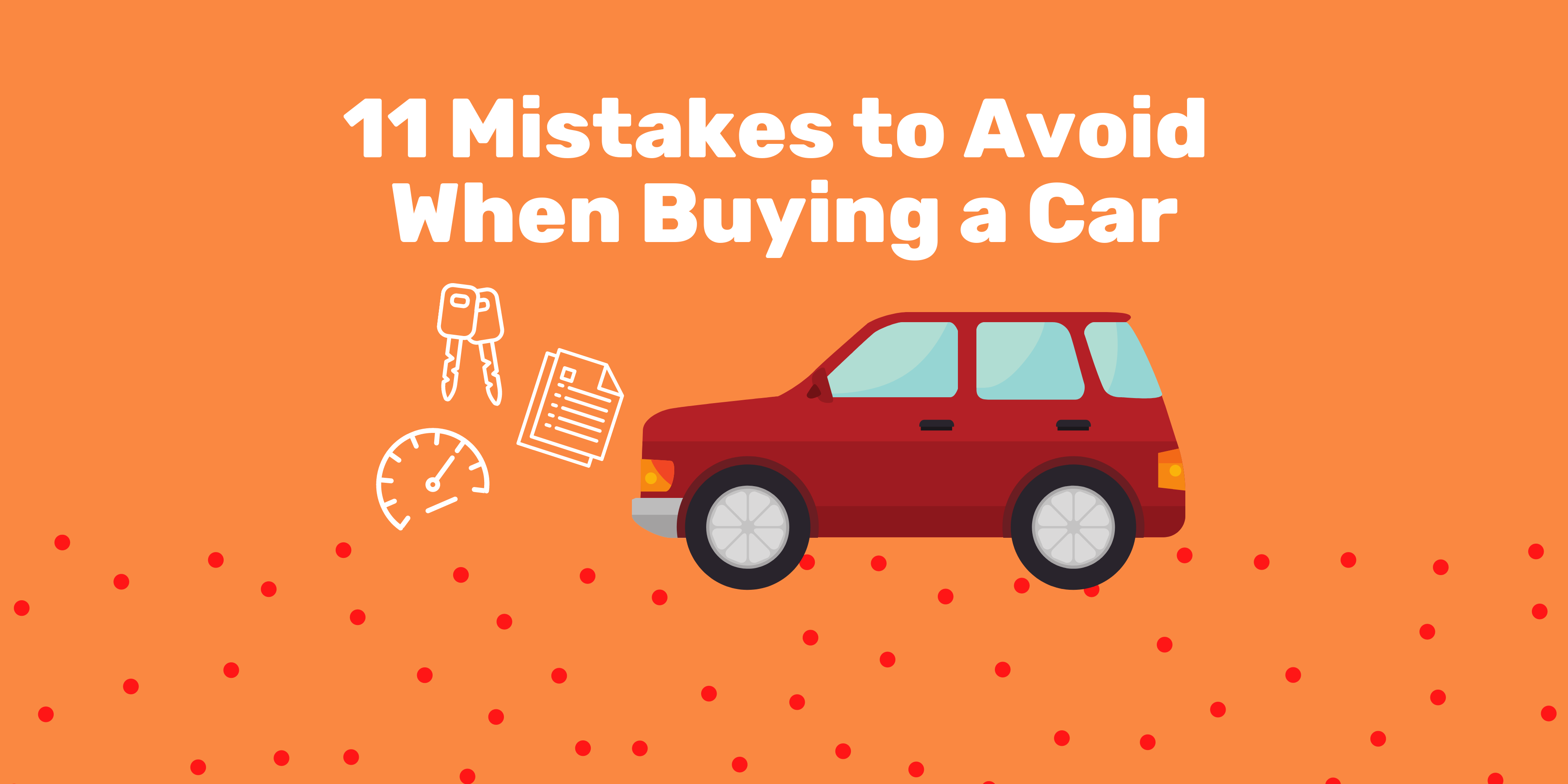About the Author
Stephany Lamas
Stephany joined the RentReporters Marketing Team in 2021.


Buying a car is a significant expense, so you want to make sure you’re making the right decisions. Doing your homework ahead of time can save you from making mistakes that could cost a lot of money. Before car shopping, come prepared first and read the tips below to be ready to purchase your new vehicle.
Before buying a car, it’s crucial to research all the different types of vehicles available and their prices. You never want to rush into buying a car or buying the first one you see.
Determine which kind of car will suit you best and what will work with your budget to ensure you don’t go into a huge debt you can’t afford. For example, SUVS are popular and higher in price but do you need an SUV, or will a sedan work just as well for your needs?? Researching models, trim, each brand’s reliability, and gas mileage is also important.
Keep an eye out for reports of new models arriving soon because dealers often cut down prices to move their old inventory. It’s your responsibility to find out what’s available rather than being persuaded by a dealer’s advertising. Remember, don’t walk into a dealership without researching first.
Interest rates when financing through the dealership is usually much more expensive than financing with a credit union or other banks.
You could be talked into signing an agreement favorable to the dealership and not you. For example, you could wind up paying more interest than you need to. This technique is called “interest-rate bumping.” If a dealership’s loan is the fairest, you can choose it, but it’s good to come to the table with financing options.
When you have an idea of the car you want that suits your needs and wallet, make sure to search multiple different dealerships in your area.
If you’re set on a specific type of car like a Kia and only have one Kia dealership in the area, find out if other dealerships carry that brand you like. Browse online to find typical deals on Kias, then go back to your local dealers to negotiate now that you have a better idea. If not, try to look into competitive brands as well.
The best way to pay less per month is to increase your down payment. If you tell a dealer you want to pay less, all they will do is extend the term of the loan or lease, which will increase your interest charges. The net price of the vehicle matters far more than the monthly payments.
A longer loan term with higher interest rates can quickly turn a car worth $15,000 into $40,000 in payments over the life of the loan – that’s not a deal you want to make! Car salespeople like to steer you away from talking about the net price of the car but keep the pressure on them about it and try to negotiate it down. After you agree on a price, you can choose the best payment terms.
The number on the window sticker is not the final price. This is called the Manufacturer’s Suggested Retail Price, emphasizing “Suggested.” Don’t use that price as your starting point, as you’ll end up overpaying. Instead, concentrate on the second, lower price the dealer calls “dealer invoice.”
A dealer invoice is what the dealer pays the manufacturer for the car.
The best and easiest way to negotiate is by contacting dealers for a free price quote. This will show you which dealer is more flexible on pricing and which ones are more willing to discount their prices to sell the car.
Before going to the dealership, research and find out their cost. Once you have all the information you need, you can start your price negotiations from a stronger position – the dealer invoice cost, not the suggested retail price.

In just a few minutes, discover your credit knowledge level and get instant access to a FREE credit education course tailored to you!
Always test drive the car you pick out!
This will ensure you’re comfortable with the car and the features it comes with. Even though you may have one car in mind, experts recommend that first-time buyers drive at least seven different vehicles and four cars for buyers who have previously owned a car.
Spend at least half an hour in the test drive. If the salesperson only gives you a few minutes, let them know you want more time to drive it. You need to feel confident owning that car and be sure that it’s free of defects.
Find out what it does and doesn’t have and whether it fits your needs. Be sure to drive it on the highway to see if it makes any strange sounds, and drive over different road surfaces and feel how it rides. Most importantly, check that you’re comfortable and that you like everything that it comes with.
Buying a vehicle you can’t get comfortable in or enjoy is one of the biggest car shopping mistakes you can make.
We all have a favorite car we’d love to have.
However, sticking to one specific model can be a costly mistake. The salesperson may notice your enthusiasm and determination to get that particular model and will be less flexible on the price because they know you will probably buy it anyways.
Not only that, you’re not likely to be open-minded to other models that may be less expensive and better for your needs. You may get an even better deal if you let the salesperson know that you’re interested in buying the car if you can buy it at a specific price, but if you can’t buy it at the price you want or can afford, you’re happy to look at other vehicles.
Dealerships have deals every holiday, season, and sometimes every week.
They try to entice you to buy with “limited time offer” deals, special financing, and rebates. You can find offers everywhere that sound appealing and worthwhile but don’t dwell on the deal.
Instead, focus on the car you need and its reliability. You can always negotiate even when there’s a deal because special financing and rebates are usually offered by the manufacturer, not the dealer. These limited-time offers are created to rush you to buy before you consider the actual fairness of the deal.
The idea that these offers will expire and you’re going to miss out on a huge deal is false. Take your time and know that these offers are still going to be there when you’re ready to buy.
Salespeople will always ask you if you want to add rustproofing, fabric protection, windshield coatings, and coating to guard the paint, but the truth is, you don’t need them.
The bodies of new vehicles are already protected, so it’s better to say no. Saying yes just puts more money into the dealer’s pocket while you take on a bigger debt. Thinking, “I’m spending this much already, so why not spend a little more to make it extra special?” will be trouble.
If you need something later down the road, you can always shop around, and you’ll usually find it at a much better price. Read the contract carefully before signing it, and if it contains unwanted extras, have them removed.
If you’re planning to sell or trade-in your car, it’s important to know its value. If you owe more than your current car is worth, this won’t stop the salesperson from selling you a new car and trading yours in.
They have many ways to convince you to add your debt to the vehicle you’re buying. The dealership simply adds the difference to your new loan, which means you’re borrowing money to repay the money you’ve already borrowed. When you stop to calculate the numbers, this can be very expensive.
If you can’t pay off your existing car loan before trading it, consider holding onto your current vehicle if it doesn’t have any mechanical or safety issues. When you buy a new car, try to do it with a significant down payment, about 20% of the purchase price, so you don’t find yourself owing more than the car is worth.
Used cars are sold as-is, and most salespeople won’t tell you all that is wrong with the vehicle, which can get you into trouble if you’re not a skilled mechanic. It’s a good idea to hire a professional inspector to inspect the car and inspect the title history by purchasing a used car vehicle history report. A mechanic will come to look at the vehicle, usually for $100 – $200. It might seem like a lot, but that investment can save you thousands in expensive repairs down the road if your mechanic finds a problem.
Stephany joined the RentReporters Marketing Team in 2021.
